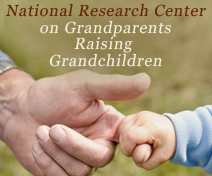ScholarWorks > Institutes & Centers > Grandparents Raising Grandchildren > GrandFamilies > Vol. 4 > Iss. 2 (2017)
Abstract
The effects of caring for grandchildren on grandparents’ emotional and physical well-being have become a significant area of focus in behavioral and medical research. Research suggests that African American grandmothers may experience increased mental and physical health challenges due to their caregiving stressors. To buffer the adverse influence of stress, caregivers often rely on informal social support from family and/or community members. In this study we explored older, African American caregivers’ management of their emotional well-being within the context and circumstances of available to minimal social support from family and community. During an 18-month period, seven caregiving grandmothers participated in three face-to-face, audiotaped, semi-structured interviews; eco-map and genogram data was included to understand the contextual complexities of caregivers’ social support and their strategies for survival. Using constant comparative analysis, six interrelated themes revealed grandmothers operated along a continuum of reliable to unreliable social support. In the context of these varying ranges of social support, four sub-themes depicting their survival strategies were identified: being strong, self-sacrificing, receiving help and self-compassion. Utilization of each survival strategy was dependent on grandmothers’ perception of where they fell on the continuum of reliable to unreliable social support. Grandmothers who engaged in being strong and self-sacrificing engaged in stress-related health behaviors, such as emotional eating, smoking nicotine, disruptive sleep patterns and postponement of self-care. We offer specific practice recommendations for addressing the emotional and physical health needs of grandmother caregivers.
Recommended Citation
Simpson, G. M.,
Pressley, T. D.,
Carthron, D. L.,
Stansbury, K.
(2017). Social Support and Survival Strategies of Older African American Grandmother Caregivers. GrandFamilies: The Contemporary Journal of Research, Practice and Policy, 4 (2).
DOI: https://doi.org/10.15453/3067-3674.1052
Available at: https://scholarworks.wmich.edu/grandfamilies/vol4/iss2/5
